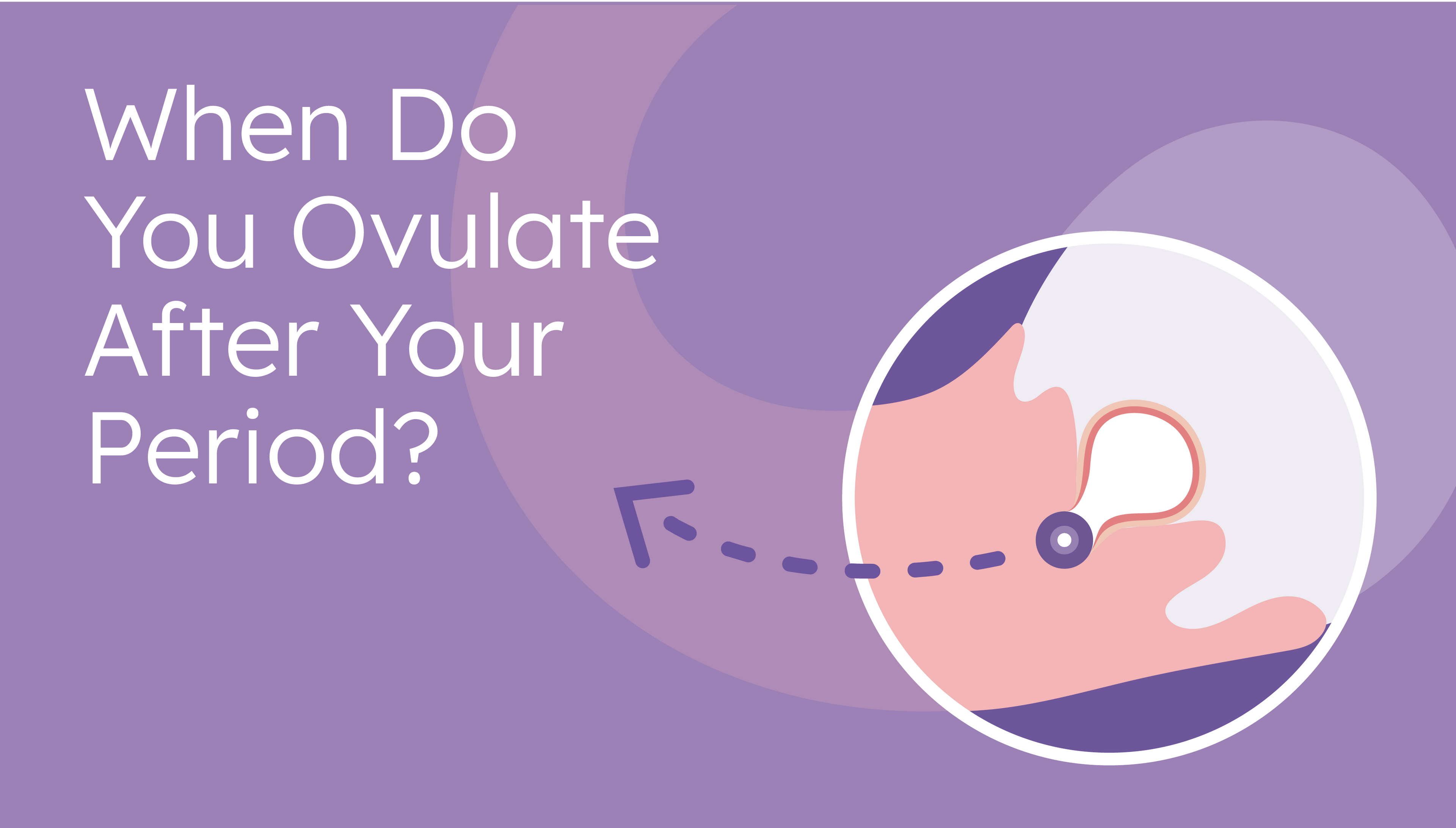
If you’re thinking about your fertility, or maybe trying to conceive already, one of the most helpful things you can do for yourself is figure out when (or even if) you’re ovulating!
We may call it “the menstrual cycle,” but ovulation is really the main event, and successful ovulation can make or break your chance of getting pregnant. Ovulation, or the release of an egg, is crucial because without ovulation, there’s nothing for sperm to fertilize.
Knowing when ovulation occurs can be really important too, as studies show that mistiming intercourse and missing ovulation is a primary cause of infertility. So, how do you know when you’re ovulating? Keep on reading to learn the answer to this and other key questions about ovulation!
When does ovulation occur after your period?
One of the most common challenges of finding ovulation for many people is simply that it isn’t obvious and easy to observe like menstruation is! Fortunately, we can use menstruation as a starting point to give us an idea when ovulation is. There are also many more subtle but easily detectable signs of ovulation, and we’ll cover those in a bit.
For ease of tracking your cycle, the day your period starts is referred to as cycle day 1. During this time, your overall hormonal activity is pretty low, but over the next two weeks or so, estrogen and luteinizing hormone (LH) will begin to rise as your body prepares for the release of an egg.
LH surges 12-36 hours before ovulation, and this is the final signal to your ovaries that it’s time for an egg to be released! This is actually the time that you’re most fertile-more on that later.
Overall, this is on average 14-19 days after your period starts! If you have pretty regular cycles, especially if you’re just starting out on your TTC journey, you can start timing intercourse around this time and as an estimate, this can work pretty well.
This average ovulation timing is also how most period trackers or ovulation calculators will estimate when you’re fertile. These can be a great start, but just keep in mind that they won’t usually work very well if you have irregular cycles, and they don’t actually confirm that you’re ovulating.

How do you know when you’re ovulating?
So if ovulation calculators are just an estimate, how do you know when you’re actually ovulating? There are many signs of ovulation that your body provides, but unfortunately we don’t often learn about those in health class!
No worries though–we’re here to share our knowledge and our top ways to predict ovulation.

1. Ovulation Predictor Kits or LH Tests
Your unique hormone patterns are one of the best and most accurate ways to know when you’re actually ovulating, and you can track estrogen and luteinizing hormone directly and easily at home!
SInce LH surges 12-36 hours before ovulation, a positive LH test (sometimes called ovulation predictor kits) means there’s a pretty good chance you’re about to ovulate, and predicts your two most fertile days. Proov Predict is our favorite LH test, and pairs well with Proov Confirm to check for successful ovulation too.
You can also test for estrogen to detect your full fertile window, not just your most fertile two days, with Proov Complete. Adding in estrogen testing will help you understand what’s happening leading up to your LH surge, and give you additional days during which sperm may survive and be available to fertilize that egg when it comes.
LH tests alone aren’t everything-while they work well for the majority of people, about 10% of users may never get a positive but could still be ovulating. On the flip side, if you have PCOS, it’s possible you may get positive tests frequently.
2. Cervical Mucus
Did you know that you can actually track your fertility based on the fluid that your cervix produces? If you’ve ever noticed discharge that’s sort of like eggwhite–slippery, stretchy, and clear–that’s actually your cervix preparing to help move sperm up into the uterus!
As the cervix responds to rising estrogen, cervical mucus becomes more fluid, clear, and stretchy. This is a great indicator that your fertility is high and ovulation is on its way.
You can also track your cervical mucus with kegg, which helps determine your fertile window based on electrolyte levels!
3. Secondary Fertility Signs
While cervical mucus and ovulation tests are the most accurate and direct ways to know when you’re going to ovulate, there are a number of other signs that may also help you figure it out. These include rising or high libido (because testosterone also peaks around ovulation), increased energy, or mittelschmertz/ovulation pain. For more information on these, check out “5 signs of high fertility!”
Am I most fertile the day that I ovulate?
Of course, if you’re TTC, part of the point of tracking ovulation is to find your most fertile time, so when does that happen?
Turns out, it isn’t necessarily ovulation day, but actually the day before, when LH is surging! Because sperm need time to get to the egg, this is the best day to try to make sure sperm are available when the egg is released.
If you want the details, your chances of conceiving around ovulation day are approximately:
- 3 days before: 27%
- 2 days before: 33%
- 1 day before/Day of LH surge: 41%
- Day of ovulation: 20%

So you can see that predicting ovulation with a method that gives you at least a day’s warning that ovulation is impending is important for properly timing intercourse!
Now that you know all about when ovulation is, the next part of the puzzle is confirming ovulation, or making sure that it actually happened and that your body is ready for healthy implantation of a new pregnancy!
To learn all about the importance of confirming ovulation, check out “The Difference Between Ovulation and Successful Ovulation.”













